– whereas the often scolded cholesterol is good for you
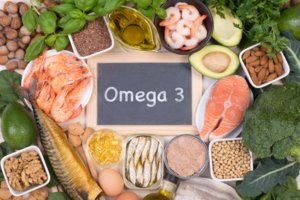 Cardiovascular diseases account for more deaths than anything else. Still, there is a lot of discussion about the diet and its impact on cardiovascular health, typically when it comes to the question of avoiding fat and choosing margarine instead of butter. A team of Czech scientists decided to study diet habits among different populations and compare these with the risk of cardiovascular disease and premature death. Their study shows that there is no need to be afraid of cholesterol. In fact, the official dietary guidelines could easily do with an adjustment. At the same time, it is important to reduce our intake of carbohydrates and omega-6 fatty acids that are the real culprits. Finally, it is essential to increase the intake of omega-3.
Cardiovascular diseases account for more deaths than anything else. Still, there is a lot of discussion about the diet and its impact on cardiovascular health, typically when it comes to the question of avoiding fat and choosing margarine instead of butter. A team of Czech scientists decided to study diet habits among different populations and compare these with the risk of cardiovascular disease and premature death. Their study shows that there is no need to be afraid of cholesterol. In fact, the official dietary guidelines could easily do with an adjustment. At the same time, it is important to reduce our intake of carbohydrates and omega-6 fatty acids that are the real culprits. Finally, it is essential to increase the intake of omega-3.
 Inflammation appears to be a key factor in the majority of chronic illnesses such as e.g. rheumatism, type-2 diabetes, and cancer. Science has primarily focused on EPA (eicosapentaenoic acid), but new research points to supplementation with DHA (docosahexaenoic acid) as being even more effective in healthy patients with too much abdominal fat and subclinical systemic inflammation.
Inflammation appears to be a key factor in the majority of chronic illnesses such as e.g. rheumatism, type-2 diabetes, and cancer. Science has primarily focused on EPA (eicosapentaenoic acid), but new research points to supplementation with DHA (docosahexaenoic acid) as being even more effective in healthy patients with too much abdominal fat and subclinical systemic inflammation.
- because of the many antioxidants
 A new Chinese study that is published in the science journal, Heart, shows that eating an egg every day can lower your risk of stroke by 26 percent. The reason is that eggs contain selenium and other powerful antioxidants that protect against atherosclerosis, and we do not get all that much selenium from our diets. Therefore, forget all about the cholesterol scare and warnings against eating eggs. That dietary advice is outdated and has done more harm than good.
A new Chinese study that is published in the science journal, Heart, shows that eating an egg every day can lower your risk of stroke by 26 percent. The reason is that eggs contain selenium and other powerful antioxidants that protect against atherosclerosis, and we do not get all that much selenium from our diets. Therefore, forget all about the cholesterol scare and warnings against eating eggs. That dietary advice is outdated and has done more harm than good.
 Even short-term contact with cholesterol lowering drugs can cause potentially harmful side effects such as exercise intolerance and muscle pain, scientists report.
Even short-term contact with cholesterol lowering drugs can cause potentially harmful side effects such as exercise intolerance and muscle pain, scientists report.
Dietary fibres are coarse, indigestible carbohydrates. They are constituents of cell walls in plants and differ from starch and sugar by their inability to be broken down by the digestive enzymes in the gastro-intestinal tract. For that reason, dietary fibre hardly provides any energy on its way through the digestive system. On its passage through the system, fibre affects the intestinal contents and its transit time, which benefits the digestion and also provides secondary health benefits.
Dietary fibre is divided in two groups: Soluble and insoluble fibre types.
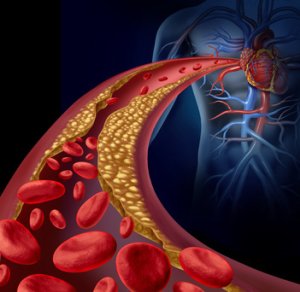 Atherosclerosis is one of the leading causes of death in the Western world, and the heart is particularly vulnerable. According to a study from the University of Birmingham, Alabama (USA), foods that are rich in potassium such as bananas, potatoes, avocado, and almonds protect against this disease, which takes years to develop. Beware that too much salt and the use of diuretics may deplete the body’s potassium stores.
Atherosclerosis is one of the leading causes of death in the Western world, and the heart is particularly vulnerable. According to a study from the University of Birmingham, Alabama (USA), foods that are rich in potassium such as bananas, potatoes, avocado, and almonds protect against this disease, which takes years to develop. Beware that too much salt and the use of diuretics may deplete the body’s potassium stores.
- and help prevent atherosclerosis
 On a global scale, atherosclerosis is the leading cause of death due to heart failure or stroke. Atherosclerosis causes symptoms such as breathing difficulty, calf pain,impotence, and poor memory as a result of organs and tissues not getting enough blood and oxygen. Because the condition develops slowly and many people are not even aware of its presence before it is too late, early prevention is vital. According to a study that is published in the science journal Circulation, four grams of fish oil daily can lower levels of triglycerides, a blood lipid that is considered to be more harmful than cholesterol. It is also important to address the indirect causes of elevated triglyceride levels such as overweight, metabolic syndrome and type 2 diabetes. Consuming too many carbohydrates may even cause fatty liver and result in excess triglyceride production. On the other hand, triglycerides also have health properties, which we will take a closer look at for clarity.
On a global scale, atherosclerosis is the leading cause of death due to heart failure or stroke. Atherosclerosis causes symptoms such as breathing difficulty, calf pain,impotence, and poor memory as a result of organs and tissues not getting enough blood and oxygen. Because the condition develops slowly and many people are not even aware of its presence before it is too late, early prevention is vital. According to a study that is published in the science journal Circulation, four grams of fish oil daily can lower levels of triglycerides, a blood lipid that is considered to be more harmful than cholesterol. It is also important to address the indirect causes of elevated triglyceride levels such as overweight, metabolic syndrome and type 2 diabetes. Consuming too many carbohydrates may even cause fatty liver and result in excess triglyceride production. On the other hand, triglycerides also have health properties, which we will take a closer look at for clarity.
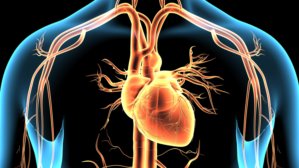 On a global scale, cardiovascular disease and coronary occlusion cause more deaths than any other factor. However, according to a large meta-analysis from Harvard T. H. Chan School of Public Health and Brigham and Women’s Hospital in Boston, USA, people who take fish oil have a lower risk of atherosclerosis and cardiac failure than those, who do not take the supplements. The study also revealed that high-dosed fish oil supplementation delivers more health benefits than the lower doses. Atherosclerosis develops gradually, and millions of people die every year because of this problem, which means that even minor changes such as taking supplements and eating a healthier diet, can improve quality of life and prevent many deaths. So, according to the new study, how much fish oil is needed in order to obtain the optimal cardiovascular effect?
On a global scale, cardiovascular disease and coronary occlusion cause more deaths than any other factor. However, according to a large meta-analysis from Harvard T. H. Chan School of Public Health and Brigham and Women’s Hospital in Boston, USA, people who take fish oil have a lower risk of atherosclerosis and cardiac failure than those, who do not take the supplements. The study also revealed that high-dosed fish oil supplementation delivers more health benefits than the lower doses. Atherosclerosis develops gradually, and millions of people die every year because of this problem, which means that even minor changes such as taking supplements and eating a healthier diet, can improve quality of life and prevent many deaths. So, according to the new study, how much fish oil is needed in order to obtain the optimal cardiovascular effect?
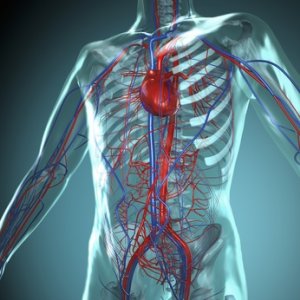 There is absolutely no reason not to consume eggs, meat, butter and other cholesterol-filled foods with a good conscience. American dietary guidelines have finally exonerated cholesterol, which happens to be an essential compound. Many scientists actually claim that atherosclerosis and cardiovascular disease are both a result of inflammation and lack of specific micronutrients. It is important to pay attention to factors that are known to promote inflammation in the body and take the necessary steps by looking after your circulatory system, making healthy lifestyle choices, and possibly even using supplements.
There is absolutely no reason not to consume eggs, meat, butter and other cholesterol-filled foods with a good conscience. American dietary guidelines have finally exonerated cholesterol, which happens to be an essential compound. Many scientists actually claim that atherosclerosis and cardiovascular disease are both a result of inflammation and lack of specific micronutrients. It is important to pay attention to factors that are known to promote inflammation in the body and take the necessary steps by looking after your circulatory system, making healthy lifestyle choices, and possibly even using supplements.
 ‘Taking capsules with co-enzyme Q10 has freed me of the severe side effects of my cholesterol lowering medicine,’ Mrs Franken explains. She used to suffer from nasty muscle pains, a common side effect of so-called statines. ‘Everything tended to hurt when I moved. That’s very annoying, to say the least. I’m glad that’s all in the past!’
‘Taking capsules with co-enzyme Q10 has freed me of the severe side effects of my cholesterol lowering medicine,’ Mrs Franken explains. She used to suffer from nasty muscle pains, a common side effect of so-called statines. ‘Everything tended to hurt when I moved. That’s very annoying, to say the least. I’m glad that’s all in the past!’
 Omega-3 fatty acids belong to a group of polyunsaturated fatty acids. Their "omega-3" name indicates that they have a double bond at the third carbon atom in the middle carbon chain. Omega-3 fatty acids provide energy and constitute an important element in all cell membranes and various biochemical processes. The type known as ALA (alpha-linoleic acid) is essential, as the human body is unable to produce it. We depend on a dietary supply of this fatty acid. By means of enzymes, ALA is converted to EPA (eicosapentaenoic acid) and DHA (docosahexaenoic acid) and finally into some hormone-like substances named prostaglandins (E3).
Omega-3 fatty acids belong to a group of polyunsaturated fatty acids. Their "omega-3" name indicates that they have a double bond at the third carbon atom in the middle carbon chain. Omega-3 fatty acids provide energy and constitute an important element in all cell membranes and various biochemical processes. The type known as ALA (alpha-linoleic acid) is essential, as the human body is unable to produce it. We depend on a dietary supply of this fatty acid. By means of enzymes, ALA is converted to EPA (eicosapentaenoic acid) and DHA (docosahexaenoic acid) and finally into some hormone-like substances named prostaglandins (E3).
 Eat plenty of oily fish from clean oceans or take a fish oil supplement to make sure that you get enough of the essential omega-3 fatty acids. It lowers your risk of premature death by protecting you against atherosclerosis and a number of other diseases. In fact, blood levels of omega-3 tell a lot more than levels of cholesterol, according to a new study that is published in Journal of Clinical Lipidology.
Eat plenty of oily fish from clean oceans or take a fish oil supplement to make sure that you get enough of the essential omega-3 fatty acids. It lowers your risk of premature death by protecting you against atherosclerosis and a number of other diseases. In fact, blood levels of omega-3 tell a lot more than levels of cholesterol, according to a new study that is published in Journal of Clinical Lipidology.
Omega-6 fatty acids belong to a group of polyunsaturated fatty acids whose "omega-6" name indicates that they have a double bond at the sixth carbon atom in the middle carbon chain. Omega-6 fatty acids provide energy and they are constituents of cell membranes and numerous biochemical processes. The type called LA (linoleic acid) is essential, as we humans are unable to synthesise it in the body. We depend on LA from our diets. Helped by certain enzymes, LA gets converted to GLA (gamma-linolenic acid) and further on to AA (arachidonic acid) and some hormone-like substances called prostaglandins (type E1 and E2). The omega-6 fatty acids work together in a biochemical teamwork with omega-3 fatty acids. The type of fatty acids and the mutual balance between them is important for various processes.
- but may he helped with Q10
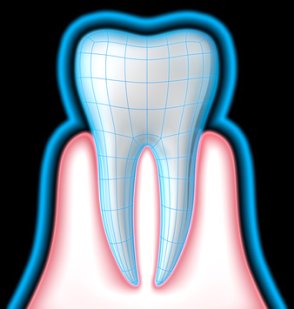 Periodontal disease (tooth loss) affects most of us at some point. Because it is an insidious disease, it is important to set in with early prevention on several accounts. It is not a matter of saving your teeth and smile - your heart and cardiovascular system are also a target of the ailment.
Periodontal disease (tooth loss) affects most of us at some point. Because it is an insidious disease, it is important to set in with early prevention on several accounts. It is not a matter of saving your teeth and smile - your heart and cardiovascular system are also a target of the ailment.
Dan ish researchers have shed some light on the longstanding mystery: Why do we see so many people treated with cholesterol-lowering statins experiencing muscle pain and in some cases, also impaired glucose tolerance. The answer is a lack of Q10!
ish researchers have shed some light on the longstanding mystery: Why do we see so many people treated with cholesterol-lowering statins experiencing muscle pain and in some cases, also impaired glucose tolerance. The answer is a lack of Q10!
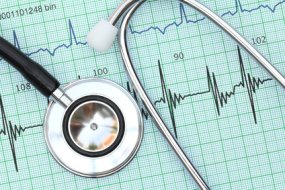 Swedish scientists wrote medical history when they discovered that supplementation with Q10 and selenium could halve a person's risk of dying from cardiovascular disease. Now, a 10-year follow-up of the Swedish study shows that taking these two supplements even has a notable long-term effect on cardiac function and lifespan.
Swedish scientists wrote medical history when they discovered that supplementation with Q10 and selenium could halve a person's risk of dying from cardiovascular disease. Now, a 10-year follow-up of the Swedish study shows that taking these two supplements even has a notable long-term effect on cardiac function and lifespan.
 More women than men die of cardiovascular disease. Diet and lifestyle play a crucial role in prevention, and there are certain supplements which have been shown to reduce heart-related deaths by over 50%.
More women than men die of cardiovascular disease. Diet and lifestyle play a crucial role in prevention, and there are certain supplements which have been shown to reduce heart-related deaths by over 50%.
 Cardiovascular diseases account for more deaths than anything else. Still, there is a lot of discussion about the diet and its impact on cardiovascular health, typically when it comes to the question of avoiding fat and choosing margarine instead of butter. A team of Czech scientists decided to study diet habits among different populations and compare these with the risk of cardiovascular disease and premature death. Their study shows that there is no need to be afraid of cholesterol. In fact, the official dietary guidelines could easily do with an adjustment. At the same time, it is important to reduce our intake of carbohydrates and omega-6 fatty acids that are the real culprits. Finally, it is essential to increase the intake of omega-3.
Cardiovascular diseases account for more deaths than anything else. Still, there is a lot of discussion about the diet and its impact on cardiovascular health, typically when it comes to the question of avoiding fat and choosing margarine instead of butter. A team of Czech scientists decided to study diet habits among different populations and compare these with the risk of cardiovascular disease and premature death. Their study shows that there is no need to be afraid of cholesterol. In fact, the official dietary guidelines could easily do with an adjustment. At the same time, it is important to reduce our intake of carbohydrates and omega-6 fatty acids that are the real culprits. Finally, it is essential to increase the intake of omega-3.







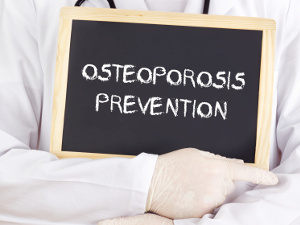



 Inflammation appears to be a key factor in the majority of chronic illnesses such as e.g. rheumatism, type-2 diabetes, and cancer. Science has primarily focused on EPA (eicosapentaenoic acid), but new research points to supplementation with DHA (docosahexaenoic acid) as being even more effective in healthy patients with too much abdominal fat and subclinical systemic inflammation.
Inflammation appears to be a key factor in the majority of chronic illnesses such as e.g. rheumatism, type-2 diabetes, and cancer. Science has primarily focused on EPA (eicosapentaenoic acid), but new research points to supplementation with DHA (docosahexaenoic acid) as being even more effective in healthy patients with too much abdominal fat and subclinical systemic inflammation. A new Chinese study that is published in the science journal, Heart, shows that eating an egg every day can lower your risk of stroke by 26 percent. The reason is that eggs contain
A new Chinese study that is published in the science journal, Heart, shows that eating an egg every day can lower your risk of stroke by 26 percent. The reason is that eggs contain 
 Atherosclerosis is one of the leading causes of death in the Western world, and the heart is particularly vulnerable. According to a study from the University of Birmingham, Alabama (USA), foods that are rich in potassium such as bananas, potatoes, avocado, and almonds protect against this disease, which takes years to develop. Beware that too much salt and the use of diuretics may deplete the body’s potassium stores.
Atherosclerosis is one of the leading causes of death in the Western world, and the heart is particularly vulnerable. According to a study from the University of Birmingham, Alabama (USA), foods that are rich in potassium such as bananas, potatoes, avocado, and almonds protect against this disease, which takes years to develop. Beware that too much salt and the use of diuretics may deplete the body’s potassium stores. On a global scale, atherosclerosis is the leading cause of death due to heart failure or stroke. Atherosclerosis causes symptoms such as breathing difficulty, calf pain,
On a global scale, atherosclerosis is the leading cause of death due to heart failure or stroke. Atherosclerosis causes symptoms such as breathing difficulty, calf pain, On a global scale, cardiovascular disease and coronary occlusion cause more deaths than any other factor. However, according to a large meta-analysis from Harvard T. H. Chan School of Public Health and Brigham and Women’s Hospital in Boston, USA, people who take
On a global scale, cardiovascular disease and coronary occlusion cause more deaths than any other factor. However, according to a large meta-analysis from Harvard T. H. Chan School of Public Health and Brigham and Women’s Hospital in Boston, USA, people who take  There is absolutely no reason not to consume eggs, meat, butter and other cholesterol-filled foods with a good conscience. American dietary guidelines have finally exonerated cholesterol, which happens to be an essential compound. Many scientists actually claim that atherosclerosis and cardiovascular disease are both a result of inflammation and lack of specific micronutrients. It is important to pay attention to factors that are known to promote inflammation in the body and take the necessary steps by looking after your circulatory system, making healthy lifestyle choices, and possibly even using supplements.
There is absolutely no reason not to consume eggs, meat, butter and other cholesterol-filled foods with a good conscience. American dietary guidelines have finally exonerated cholesterol, which happens to be an essential compound. Many scientists actually claim that atherosclerosis and cardiovascular disease are both a result of inflammation and lack of specific micronutrients. It is important to pay attention to factors that are known to promote inflammation in the body and take the necessary steps by looking after your circulatory system, making healthy lifestyle choices, and possibly even using supplements. ‘Taking capsules with co-enzyme Q10 has freed me of the severe side effects of my cholesterol lowering medicine,’ Mrs Franken explains. She used to suffer from nasty muscle pains, a common side effect of so-called statines. ‘Everything tended to hurt when I moved. That’s very annoying, to say the least. I’m glad that’s all in the past!’
‘Taking capsules with co-enzyme Q10 has freed me of the severe side effects of my cholesterol lowering medicine,’ Mrs Franken explains. She used to suffer from nasty muscle pains, a common side effect of so-called statines. ‘Everything tended to hurt when I moved. That’s very annoying, to say the least. I’m glad that’s all in the past!’ Omega-3 fatty acids belong to a group of polyunsaturated fatty acids. Their "omega-3" name indicates that they have a double bond at the third carbon atom in the middle carbon chain. Omega-3 fatty acids provide energy and constitute an important element in all cell membranes and various biochemical processes. The type known as ALA (alpha-linoleic acid) is essential, as the human body is unable to produce it. We depend on a dietary supply of this fatty acid. By means of enzymes, ALA is converted to EPA (eicosapentaenoic acid) and DHA (docosahexaenoic acid) and finally into some hormone-like substances named prostaglandins (E3).
Omega-3 fatty acids belong to a group of polyunsaturated fatty acids. Their "omega-3" name indicates that they have a double bond at the third carbon atom in the middle carbon chain. Omega-3 fatty acids provide energy and constitute an important element in all cell membranes and various biochemical processes. The type known as ALA (alpha-linoleic acid) is essential, as the human body is unable to produce it. We depend on a dietary supply of this fatty acid. By means of enzymes, ALA is converted to EPA (eicosapentaenoic acid) and DHA (docosahexaenoic acid) and finally into some hormone-like substances named prostaglandins (E3). Eat plenty of oily fish from clean oceans or take a fish oil supplement to make sure that you get enough of the essential
Eat plenty of oily fish from clean oceans or take a fish oil supplement to make sure that you get enough of the essential  Periodontal disease (tooth loss) affects most of us at some point. Because it is an insidious disease, it is important to set in with early prevention on several accounts. It is not a matter of saving your teeth and smile - your heart and cardiovascular system are also a target of the ailment.
Periodontal disease (tooth loss) affects most of us at some point. Because it is an insidious disease, it is important to set in with early prevention on several accounts. It is not a matter of saving your teeth and smile - your heart and cardiovascular system are also a target of the ailment.
 Swedish scientists wrote medical history when they discovered that supplementation with Q10 and selenium could halve a person's risk of dying from cardiovascular disease. Now, a 10-year follow-up of the Swedish study shows that taking these two supplements even has a notable long-term effect on cardiac function and lifespan.
Swedish scientists wrote medical history when they discovered that supplementation with Q10 and selenium could halve a person's risk of dying from cardiovascular disease. Now, a 10-year follow-up of the Swedish study shows that taking these two supplements even has a notable long-term effect on cardiac function and lifespan. More women than men die of cardiovascular disease. Diet and lifestyle play a crucial role in prevention, and there are certain supplements which have been shown to reduce heart-related deaths by over 50%.
More women than men die of cardiovascular disease. Diet and lifestyle play a crucial role in prevention, and there are certain supplements which have been shown to reduce heart-related deaths by over 50%. "After about one week of taking the Q10 supplement I could feel a huge difference," says 23-year old Alan Piccini, who has been suffering from extreme fatigue and muscle aches ever since he was a child.
"After about one week of taking the Q10 supplement I could feel a huge difference," says 23-year old Alan Piccini, who has been suffering from extreme fatigue and muscle aches ever since he was a child.